Photo source: FreeBibleImages.org "How think ye? If a man have an hundred sheep, and one of them be gone astray, doth he not leave ninety and nine, and go into the mountains, and seek that which is gone astray?" (Matthew 18:12 1599 Geneva Bible) This article describes the scripture allusions for verse 2 of the children's hymn, "Savior, Like a Shepherd Lead Us." In verse 2 the hymn teaches us that Jesus befriends us, guards our way, keeps watch over us, defends us from sin, and seeks us when we go astray. In the first article in this series, Ref. 1, we learned about the background for the hymn text author, Dorothy A. Thrupp, and the hymn tune composer, William B. Bradbury. We also discussed the Biblical truths in verse 1 - that Jesus is our great Shepherd who leads us, cares for us, feeds us, and protects us. Jesus has redeemed us ("bought us"), and we belong to him (Ref. 1). Consider. At what time or times in your life did Jesus seek you when you had gone astray? In what ways does Jesus guard you and defend you from sin? Verse 2 for "Savior, Like a Shepherd Lead Us" "We are Thine, Thou dost befriend us, be the Guardian of our way; Keep Thy flock, from sin defend us, seek us when we go astray. Blessed Jesus, blessed Jesus! Hear, O hear us when we pray. Blessed Jesus, blessed Jesus! Hear, O hear us when we pray." -- Dorothy A. Thrupp (1779-1847, Ref. 2) To see the lyric sheet for all four verses of "Savior, Like a Shepherd Lead Us" on one page, click here. The lyrics are provided by Timeless Truths (Ref. 3). The Bible verses cited below are linked to the BibleGateway.com website and are quoted from the English Standard Version (ESV) unless noted otherwise (Ref. 4). Scripture Allusions - Verse 2 "We are Thine, Thou dost befriend us, be the Guardian of our way" This first line in verse 2 declares that we belong to Jesus, that he befriends us, and then asks Jesus to guard our way. We are Thine. We now belong to Jesus because he has redeemed us. The Apostle Paul wrote to Titus about "our great God and Savior, Christ Jesus, who gave Himself for us to redeem us from every lawless deed, and to purify for Himself a people for His own possession, zealous for good deeds" (Titus 2:13-14 NASB). This phrase, "We are Thine," continues the theme of redemption that the author stated at the end of verse 1 (Ref. 1, Ref. 3). Thou dost befriend us. Not only has Jesus given his life in the past to show us that he is our friend (John 15:13), he also loves us and treats us with close personal affection now in the present (Ref. 5). Jesus told his disciples, and he tells us who believe in him and follow him now, "I have called you friends" (John 15:15). Because Jesus is our Friend and we are his friend we love him and we keep his commandments (John 14:15, John 15:14). Be the Guardian of our way. In this phrase, we ask Jesus to be our spiritual "guard rails" and keep us on the right path. Jesus said, "When the Spirit of truth comes, he will guide you into all the truth, for he will not speak on his own authority, but whatever he hears he will speak, and he will declare to you the things that are to come" (John 16:13, Ref. 6). "Keep Thy flock, from sin defend us, seek us when we go astray." The three phrases in this line continue the image of the good Shepherd and what he does to protect his flock, his sheep. All three phrases are in prayer-like language. Keep Thy flock. In the phrase, "keep Thy flock," we ask Jesus, our Shepherd, to guard and protect us with personal interest and vigilance (Ref. 7). We learn the meaning of "keep" from a famous verse about the birth of the Savior. "And in the same region there were shepherds out in the field, keeping watch over their flock by night" (Luke 2:8). The Greek word in Luke 2:8 for keeping means guarding, protecting, and exercising unbroken vigilance (Ref. 7). From sin defend us. Jesus defends us from sin through the word of God and the Holy Spirit whom he has sent to indwell those who believe in Christ. Jesus said, "But the Helper, the Holy Spirit, whom the Father will send in my name, he will teach you all things and bring to your remembrance all that I have said to you" (John 14:16). David described the importance of memorizing and remembering scripture so he could apply it to guard himself from sin (Psalm 119:9-11). Jesus remembered and quoted scripture to defend himself from the devil when the devil tempted him (Matthew 4:1-11). The Apostle Paul instructed believers about the importance of the word of God coupled with truth and faith to "extinguish all the flaming darts of the evil one" (Ephesians 6:13-17). Seek us when we go astray. When we go astray (off course), Jesus will come looking for us. Jesus said, "How think ye? If a man have an hundred sheep, and one of them be gone astray, doth he not leave ninety and nine, and go into the mountains, and seek that which is gone astray?" (Matthew 18:12 1599 Geneva Bible). The Greek word for astray (used twice in this verse) means "get off-course; to deviate from the correct path (circuit, course), roaming into error, wandering; (passive) be misled" (Ref. 8). Note the interesting parallel in Genesis when the Lord God came walking in the garden seeking Adam and Eve after they had sinned (Genesis 3:8-9). "Blessed Jesus, blessed Jesus! Hear, O hear us when we pray." (Phrase repeated) The hymn text reminds us to pray in child-like trust to our Savior who protects us, defends us, and seeks us when we go astray. The request to God, "Hear my prayer," is common in the Psalms. David prayed, "O God, hear my prayer; give ear to the words of my mouth" (Psalm 54:2). "Hear my prayer, O Lord; give ear to my pleas for mercy!" (Psalm 143:1). John the disciple of Jesus wrote to believers in Christ, "I write these things to you who believe in the name of the Son of God, that you may know that you have eternal life. And this is the confidence that we have toward him, that if we ask anything according to his will he hears us" (1 John 5:13-14, italics added). Listen and Sing Along Click on this YouTube link - Solo piano meditation on the hymn "Savior, like a Shepherd Lead Us" with sing-along lyrics. Recorded by Rick Betts - March, 2011. Prayer Thank you, Jesus, for seeking us and finding us when we have gone astray. Thank you, Good Shepherd, for leading us and guarding us in the way that leads to eternal life (John 10:27-28). References
1. http://www.scriptureway.com/home/savior-like-a-shepherd-lead-us-scripture-allusions-verse-1 2. https://en.wikipedia.org/wiki/Dorothy_Ann_Thrupp 3. https://library.timelesstruths.org/music /Savior_Like_a_Shepherd_Lead_Us/ 4. https://www.biblegateway.com/ 5. https://biblehub.com/greek/5384.htm 6. http://www.scriptureway.com/home/the-spirit-of-truth 7. https://biblehub.com/greek/5442.htm 8. https://biblehub.com/greek/4105.htm
1 Comment
"The Lord is my shepherd; I shall not want. He makes me lie down in green pastures. He leads me beside still waters. He restores my soul. He leads me in paths of righteousness for his name's sake." (Psalm 23:1-3) "I am the good shepherd." (John 10:11, 14) This article describes the author background and then the scripture allusions for verse 1 of the hymn, "Savior, Like a Shepherd Lead Us." This article is the first in a series on this theologically-rich children's hymn. Reference 2 describes the scripture allusions in verse 2 of "Savior, Like a Shepherd Lead Us." Hymn Text Author Researchers do not know for sure the circumstances about how the text for "Savior, Like a Shepherd Lead Us" was written; however, researchers attribute this beloved hymn of the Christian faith to Englishwoman Dorothy Ann Thrupp (1779-1847) (Ref. 3, Ref. 4). Miss Thrupp is "particularly remembered as a writer of hymns for children" (Ref. 4). "Savior, Like a Shepherd Lead Us" first appeared unsigned (unattributed) in her collection, Hymns for the Young, in 1836 (Ref. 4). Ms. Thrupp wrote this hymn for teaching young children the message of a "caring Christ who loves all his children" (Ref. 3). 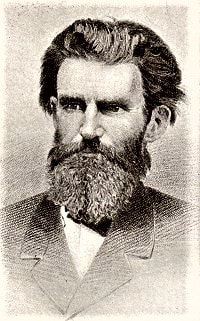 William B. Bradbury (Ref. 6) William B. Bradbury (Ref. 6) Hymn Tune Composer William Batchelder Bradbury (1816-1868) was an American musician who composed the tune in 1859 most often associated with "Savior, Like a Shepherd Lead Us" (Ref. 3, Ref. 5 below, Ref. 6). He named the tune "Bradbury" after himself (Ref. 3, Ref. 5). Mr. Bradbury "modified the original words meant for children and broadened the meaning to include all the congregation" (Ref. 3). Mr. Bradbury also composed the tunes to many popular hymns including "Jesus Loves Me," "He Leadeth Me," and "My Hope is Built" (Ref. 6). In addition to being an excellent musician and composer, Mr. Bradbury served as a music educator, choir leader, organist, and was a devoted reader of the Bible (Ref. 7, Ref. 8). All of the Bible verses below are linked to the BibleGateway.com website (Ref. 9). The verses below are quoted from the English Standard Version (ESV) unless noted otherwise. To see the lyric sheet for all four verses of "Savior, Like a Shepherd Lead Us" on one page, click here. The lyrics are provided by Timeless Truths (Ref. 10). Scripture Allusions - Verse 1 The first verse of this great hymn teaches children that Christ is our great Shepherd who leads us, cares for us, feeds us, and protects us. The verse also explains that Christ has redeemed us and that we are his possession. "Savior, like a shepherd lead us, much we need Thy tender care" The Lord is our Shepherd who leads us and cares for us. Psalm 23:1-3 -- "The Lord is my shepherd; I shall not want. (2) He makes me lie down in green pastures. He leads me beside still waters. (3) He restores my soul. He leads me in paths of righteousness for his name's sake." Psalm 23:5 -- "You prepare a table before me in the presence of my enemies; you anoint my head with oil; my cup overflows." Isaiah 40:11 (KJV) -- "He shall feed his flock like a shepherd: he shall gather the lambs with his arm, and carry them in his bosom, and shall gently lead those that are with young." John 10:11 -- "I am the good shepherd." (also John 10:14) "In Thy pleasant pastures feed us, for our use Thy folds prepare." The Lord feeds us in pleasant pastures and protects us. Ezekiel 34:14 (KJV) -- "I will feed them in a good pasture, and upon the high mountains of Israel shall their fold be: there shall they lie in a good fold, and in a fat pasture shall they feed upon the mountains of Israel." 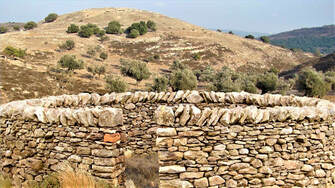 Permanent Sheepfold Enclosure - Holy Land. Photo Copyright David Padfield. Used under license. Photo source: FreeBibleImages.org. Permanent Sheepfold Enclosure - Holy Land. Photo Copyright David Padfield. Used under license. Photo source: FreeBibleImages.org. A fold was a walled in, hedged, or fenced place for keeping and protecting sheep or other livestock (Ref. 11, Numbers 32:24 KJV). Jesus referred to such a sheepfold in John 10:1 (KJV). "Truly, truly, I say to you, he who does not enter the sheepfold by the door but climbs in by another way, that man is a thief and a robber." Jesus not only is the means of access to the fold; he also is the Shepherd who protects the sheep in the fold with his own body at the door. "I am the door. If anyone enters by me, he will be saved and will go in and out and find pasture" (John 10:9, Ref. 12). "Blessed Jesus, blessed Jesus! Thou hast bought us, Thine we are." (Phrase repeated) The phrase, "Thou hast bought us, Thine we are," explains to children the meaning of redemption. HELPS Word-studies defines redeem as "to release (set free) by paying the full ransom"; (figuratively) to restore "something back, into the possession of its rightful owner" (Ref. 13). Christ has purchased us and now we are his possession. Titus 2:13-14 (italics added) -- " ... waiting for our blessed hope, the appearing of the glory of our great God and Savior Jesus Christ, who gave himself for us to redeem us from all lawlessness and to purify for himself a people for his own possession who are zealous for good works." 1 Peter 1:18-19 (KJV) -- "Forasmuch as ye know that ye were not redeemed with corruptible things, as silver and gold, from your vain conversation received by tradition from your fathers; But with the precious blood of Christ, as of a lamb without blemish and without spot." Listen and Sing Along Click on this YouTube link - Solo piano meditation on the hymn "Savior, like a Shepherd Lead Us" with sing-along lyrics. Recorded by Rick Betts - March, 2011. Prayer Thank you, Jesus, for being my Savior and Shepherd. Thank you for leading me and for all the ways that you care for me. References
1. http://diglib.library.vanderbilt.edu/act-imagelink.pl?RC=48288 2. http://www.scriptureway.com/home/savior-like-a-shepherd-lead-us-scripture-allusions-verse-2 3. https://www.umcdiscipleship.org/resources/history-of-hymns-savior-like-a-shepherd-lead-us 4. https://en.wikipedia.org/wiki/Dorothy_Ann_Thrupp 5. The United Methodist Hymnal, The United Methodist Publishing House, 1989 6. https://en.wikipedia.org/wiki/William_Batchelder_Bradbury 7. https://www.wholesomewords.org/biography/bbradbury.html 8. http://www.hymntime.com/tch/bio/b/r/a/d/bradbury_wb.htm 9. https://www.biblegateway.com/ 10. Reference 10 begins next line https://library.timelesstruths.org/music/Savior_Like_a_Shepherd_Lead_Us/ 11. https://www.biblegateway.com/resources/encyclopedia-of-the-bible/Fold 12. http://www.ScriptureWay.com/home/jesus-is-the-door 13. https://biblehub.com/greek/3084.htm
"And there arose a fierce gale of wind, and the waves were breaking over the boat so much that the boat was already filling up. Jesus Himself was in the stern, asleep on the cushion; and they woke Him and said to Him, 'Teacher, do You not care that we are perishing?' And He got up and rebuked the wind and said to the sea, 'Hush, be still.' And the wind died down and it became perfectly calm. And He said to them, 'Why are you afraid? Do you still have no faith?' They became very much afraid and said to one another, 'Who then is this, that even the wind and the sea obey Him?' " (Mark 4:37-41) "When the storms of life are raging, Stand by me (stand by me); When the storms of life are raging, Stand by me (stand by me); When the world is tossing me Like a ship upon the sea Thou who rulest wind and water, Stand by me (stand by me)." -- Charles Albert Tindley, 1905 This article describes the background and scripture allusions for the gospel hymn, "Stand by Me," by Rev. Dr. Charles A. Tindley. Consider. Are you going through a personal storm today? The same Jesus who rebuked the wind and said to the sea, "Hush, be still," can calm your personal storms. 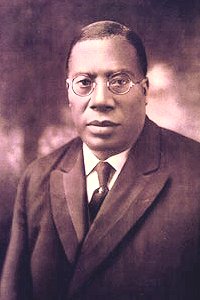 Rev. Dr. Charles A. Tindley (Ref. 2) Rev. Dr. Charles A. Tindley (Ref. 2) Hymn Author and Composer. The Reverend Dr. Charles Albert Tindley (1851-1933) was an American Methodist minister and was one of the founding fathers of American gospel music (Ref. 1, Ref. 2). He was the son of a slave, and he taught himself to read and write. After the American Civil War he moved to Philadelphia as a young person where he found employment as a hod carrier (brick carrier) (Ref. 1). He and his wife Daisy attended the Bainbridge Street Methodist Episcopal Church in Philadelphia where Charles became the sexton (janitor) (Ref. 1, Ref. 3). Tindley was never able to go to school (Ref. 1). He was self-taught, never graduating from college or seminary, yet he acquired and read more than 8,000 books (Ref. 4). Tindley learned Hebrew through the help of a Philadelphia synagogue, and he learned Greek by taking a correspondence course through the Boston Theological School. Tindley qualified for ordination in the Methodist Episcopal Church by examination (Ref. 1). After serving churches in Delaware, New Jersey, and Maryland, Tindley later became the pastor at the same church in Philadelphia where he had been a janitor (Ref. 1, Ref. 4). Under his leadership and powerful preaching, the multi-racial congregation grew from 130 members to more than 10,000 members (Ref. 1, Ref. 3). Tindley was awarded honorary Doctor of Divinity degrees by Bennett College (North Carolina) and Morgan College (Maryland) (Ref. 1). Life was not easy for people in the northeastern United States at the turn of the 20th century. The area near Tindley's church was economically depressed, especially for African Americans during this time (Ref. 4). The hymn "Stand By Me" speaks to the difficulties that many of Tindley's parishioners faced (Ref. 4). Charles A. Tindley composed and published over 40 gospel songs (Ref. 1, Ref. 2). His best-known gospel songs include "Stand by Me" (Ref. 5), "Leave it There" (Ref. 6), and "We'll Understand It Better By and By" (Ref. 7). His song, "I’ll Overcome Some Day" (Ref. 8) was the basis for the American civil rights anthem "We Shall Overcome," popularized in the 1960s (Ref. 2). "Stand By Me" Scripture Allusions. Below I describe several phrases from the "Stand by Me" hymn text and their scripture allusions. To see the complete set of all five verses of the hymn text, please click either on the attached lyric sheet or hymn sheet.
Listen. The music for "Stand By Me" will encourage you. Watch one or both of the music videos below.
Apply. Thank Jesus for the times he has stood by you during the challenges you have faced in life. Ask Jesus to stand by you, to give you strength and courage, and to calm the storm you are going through today. References
1. https://en.wikipedia.org/wiki/Charles_Albert_Tindley 2. http://www.hymntime.com/tch/bio/t/i/n/tindley_ca.htm 3. http://www.dubois-theward.org/history/congregations/tindley-temple/ 4. https://www.umcdiscipleship.org/resources/history-of-hymns-stand-by-me 5. http://www.hymntime.com/tch/htm/s/t/a/n/standbym.htm 6. http://www.hymntime.com/tch/htm/l/e/a/v/leaveitt.htm 7. http://www.hymntime.com/tch/htm/w/e/l/u/welunder.htm 8. http://www.hymntime.com/tch/htm/i/l/l/o/illoverc.htm 9. https://biblehub.com/commentaries/benson/2_timothy/4.htm
"And He got up and rebuked the wind and said to the sea, 'Hush, be still.' And the wind died down and it became perfectly calm." (Mark 4:39) "O Christ! Whose voice the waters heard And hushed their raging at Thy word ..." -- William Whiting (1860, Ref. 1) Background. "Eternal Father, Strong to Save" is a hymn traditionally associated with seafarers, particularly in the maritime armed services (Ref. 2). The hymn became popular with the Royal Navy and the United States Navy in the late 19th century. The hymn also has a long tradition in civilian maritime contexts as well, being regularly sung during services on ocean crossings (Ref. 2). In America, "Eternal Father" is often called the Navy Hymn because it is sung at the U.S. Naval Academy in Annapolis, Maryland. In 1879, Lieutenant Commander Charles Jackson Train was a navigation instructor at the U.S. Naval Academy and the master of the Midshipman Choir. Train began the practice of concluding worship services with the 1861 version of the hymn every Sunday. The hymn eventually became a service-wide tradition, becoming known as the Navy Hymn (Ref. 2). The U.S. Navy Band played “Eternal Father” in 1963 as U.S. President John Kennedy's body was carried up the steps of the U.S. Capitol to lie in state. Kennedy was a PT (Patrol Torpedo) boat commander in World War II (Ref. 2, Ref. 3). “Eternal Father” was played by the Navy Band and the Coast Guard Band during the funeral of U.S. former President Ronald Reagan. The hymn was also played at the Memorial Ceremony in Norfolk, VA for the USS Cole (DDG-67) after the bombing of the ship in October 2000. It was performed by the U.S. Navy Sea Chanters at the State Funeral of U.S. former President Gerald R. Ford, who had served in the U.S. Navy during World War II in the Pacific Theater (Ref. 2). The congregation and choir at Washington National Cathedral sang "Eternal Father" during the funerals for Senator John McCain on September 1, 2018 and for former U.S. President George H. W. Bush on December 5, 2018. Both served as U.S. Navy pilots (Ref. 2). 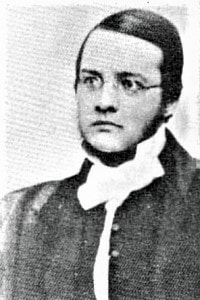 William Whiting (Ref. 5) William Whiting (Ref. 5) Hymn Text Author. William Whiting (1825-1878) was an Anglican churchman and resided on the English coast near the ocean (Ref. 2, Ref. 4). At the age of thirty-five he felt his life spared by God when a violent storm in the Mediterranean nearly claimed the ship he was traveling on. The storm instilled his belief in God’s command over the rage and calm of the sea (Ref. 2). When Whiting was headmaster at Winchester College Chorister’s School some years later, the memory of his voyage allowed Whiting to provide comfort to one of the boys he taught (Ref. 5). One day, a student confided that he was about to embark on a journey to America – "a voyage fraught with danger at that time" (Ref. 5). "A sympathetic Whiting described his own frightening experience, and he and the other boys prayed for the terrified student. And then Whiting told him, 'Before you depart, I will give you something to anchor your faith' " (Ref. 5). Whiting wrote a poem describing God’s power even over the mighty oceans (Ref. 2, Ref. 5). That poem, written in 1860, became the original text for the hymn, "Eternal Father, Strong to Save." 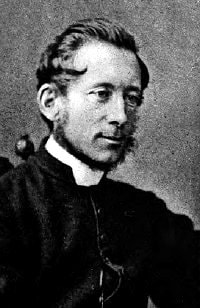 John Bacchus Dykes (Ref. 6) John Bacchus Dykes (Ref. 6) Hymn Tune Composer. John Bacchus Dykes (1823-1876) was an English clergyman and a prolific hymn tune composer (Ref. 6). Dykes composed the tune for "Eternal Father, Strong to Save" in 1861. Dykes fittingly named the tune "Melita" after a location associated with a Biblical shipwreck. Melita was the island where the Apostle Paul was shipwrecked (Acts 27:41-28:1). Today we know it as the isle of Malta (Ref. 2). Reverend Dykes published sermons and articles on religion but is best known for over 300 hymn tunes he composed (Ref. 7). In addition to his tune, Melita ("Eternal Father, Strong to Save"), John Dykes’ composed well-known tunes including Nicaea ("Holy, Holy, Holy! Lord God Almighty!") and St. Agnes ("Jesus, the Very Thought of Thee," "Happy the Home When God is There"). Scripture References. Ref. 2 and Ref. 8 provide the original verses of "Eternal Father, Strong to Save," 1861 version. You also can follow the verses by downloading the sheet music (link at top of this post, or by clicking here).
Listen - "Eternal Father, Strong to Save." U.S. Naval Academy Men's Glee Club - U.S.S. Arizona Memorial - 19March2007 Dramatic Storm Video - Marine Nationale de France with Praque Philharmonic Orchestra and Chorus - 11June2013 Military Wives - Eternal Father, Strong to Save - 10March2013 Apply. Pray for those who are serving in harm's way and need God's protection. Pray for yourself and others who are going through a storm and ask Jesus to bring calm and peace out of distress and trouble. References
1. https://www.navy.mil/navydata/nav_legacy.asp?id=172 2. https://en.wikipedia.org/wiki/Eternal_Father,_Strong_to_Save 3. https://en.wikipedia.org/wiki/PT_boat 4. https://en.wikipedia.org/wiki/William_Whiting_(poet) 5. Ref. 5 begins on the next line https://theamericanrenewalproject.org/2015/11/the-navy-hymn-eternal-father-strong-to-save/ 6. https://en.wikipedia.org/wiki/John_Bacchus_Dykes 7. http://www.hymntime.com/tch/bio/d/y/k/dykes_jb.htm 8. http://www.hymntime.com/tch/htm/e/t/e/eternalf.htm
"Joseph also went up from Galilee, from the city of Nazareth, to Judea, to the city of David which is called Bethlehem, because he was of the house and family of David, in order to register along with Mary, who was engaged to him, and was with child" (Luke 2:4). This article explores the story behind and the scripture allusions in the hymn, "Once in Royal David's City." Hymn Text Writer Cecil Frances Alexander (1818-1895) was an Anglo-Irish hymnodist and poet. Mrs. Alexander's hymns and poems though her lifetime number nearly 400 (Ref. 2). She is best known for her hymns, "All Things Bright and Beautiful," There is a Green Hill Far Away," and the Christmas carol, "Once in Royal David's City" (Ref. 3). As an adult, Cecil Frances Alexander wrote primarily for children. She felt that the truths of Christianity could best be taught through hymns (Ref. 4 below). In 1848, Cecil Frances Humphreys (her name before she married) wrote a series of hymns to teach children about the Apostles Creed (Ref. 4, Ref. 5). She wrote "Once in Royal David's City" to explain to children the phrase from the Apostle's Creed that Jesus Christ was conceived by the Holy Ghost and born of the Virgin Mary (Luke 1:34-35 KJV, Ref. 4, Ref. 5). Hymn Tune Composer Henry John Gauntlett (1805-1876) was an English organist and songwriter (Ref. 6). He was also, in turn, a lawyer, author, organ designer, and organ recitalist (Ref. 7). He composed over 1,000 hymn tunes. His most famous tune is "Irby," the tune to which we sing the Christmas carol, "Once in Royal David's City" (Ref. 6). Scripture Allusions I suggest that you refer to the attached hymn sheet music (Ref. 8) for the following discussion of Scripture and the four verses of hymn text. "Once in royal David's city" (hymn, verse 1). In the Bible, the words, "city of David," refer to two locations. In the Old Testament, the city of David referred to the area of Jerusalem that David captured as described in 1 Chronicles 11:4-8. David built houses there and lived there (1 Chronicles 15:1). David was buried in the city of David (1 Kings 2:10). In the New Testament, Luke refers to David's ancestral home, Bethlehem, as the city of David (Luke 2:4, 1 Samuel 17:12). Luke also tells what the angel said when the angel appeared to the shepherds and announced Jesus' birth. "For today in the city of David there has been born for you a Savior, who is Christ the Lord" (Luke 2:11). After the angel had spoken to the shepherds, the shepherds were clear that the location they were to go visit was in Bethlehem (Luke 2:15). "He came down to earth from heaven who is God and Lord of all" (hymn, verse 2). The words, "He came down to earth from heaven" refer to the incarnation of Christ. The Gospel of John says, "And the Word became flesh, and dwelt among us, and we saw His glory, glory as of the only begotten from the Father, full of grace and truth" (John 1:14). "He feels for all our sadness, and he shares in all our gladness" (hymn, verse 3). Jesus was fully God and fully human (John 1:1, John 1:14, Colossians 2:9, Ref. 9). As a human being, Jesus experienced the full range of human emotions, yet without sin (Hebrews 4:15-16). For example, Jesus knew grief and sorrow (Isaiah 53:3, John 11:33-35). Jesus knew joy (Hebrews 12:2). "He leads his children on to the place where he has gone" (hymn, verse 4). Jesus said, "Truly I say to you, whoever does not receive the kingdom of God like a child will not enter it at all" (Luke 18:17). The Gospel of John tells us, "But to all who believed him and accepted him, he gave the right to become children of God" (John 1:12). The hymn's words, "He leads his children," speak to me both of Jesus leading and we who believe in Jesus Christ following him (Ref. 10). Jesus said, "I am the way, and the truth, and the life; no one comes to the Father but through Me" (John 14:6). We know that Jesus has gone to prepare a place for us in heaven (John 14:2-3). Once we put our trust in Jesus Christ, he leads us and we follow him through life to his eternal home. Listen Listen and watch The Choir of King's College, Cambridge, UK sing "Once in Royal David's City." Click here for the YouTube link - Ref. 11. To see and follow the lyrics for the six verses sung in the video, click here - Ref. 12. Prayer Thank you, Jesus, for coming down from heaven to earth to become a human being. Thank you, Jesus, that you know our emotions and that you strengthen us when we are weak. Thank you, Jesus, that when we believe in and accept you, you lead us through life to your eternal home. References
1. http://www.hymntime.com/tch/htm/o/n/c/onceirdc.htm 2. https://hymnary.org/person/Alexander_CF 3. https://en.wikipedia.org/wiki/Cecil_Frances_Alexander 4. Robert K. Brown, Mark R. Norton, "The One Year Book of Hymns," Tyndale House Publishers, Inc., 1995 5. http://www.paperlesshymnal.com/tph/stories/cfalexander/ 6. https://en.wikipedia.org/wiki/Henry_Gauntlett 7. http://www.hymntime.com/tch/bio/g/a/u/gauntlett_hj.htm 8. https://hymnary.org/text/once_in_royal_davids_city_stood_a_lowly 9. http://www.ScriptureWay.com/home/who-is-jesus 10. http://www.ScriptureWay.com/home/jesus-is-the-way-to-heaven 11. https://www.youtube.com/watch?v=X1QZBnWY4F0 12. (the link begins on the next line) https://www.hymnsandcarolsofchristmas.com/Hymns_and_Carols/once_in_royal_davids_city.htm
Today's lesson explores the Bible verses behind the excellent hymn, "Teach Me Thy Way, O Lord."
Hymn Author and Composer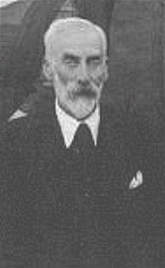 Benjamin Mansell Ramsey (Ref. 2) Benjamin Mansell Ramsey (Ref. 2)
Benjamin Mansell Ramsey wrote the text for "Teach Me Thy Way, O Lord" based on Psalm 27:11 and several additional Scripture verses. Mr. Ramsey also composed the tune, "Camacha," which we use today when singing this hymn.
Benjamin Mansell Ramsey (1849 - 1923) was an English organist and amateur composer (Ref. 1). He also was a well-known music teacher near Bournemouth, England. Mr. Ramsey composed songs, piano pieces, and carols. He also wrote works on music theory (Ref. 2). Wikipedia reports that Mr. Ramsey also conducted an amateur orchestra in the 1880s, and was involved in establishing the Bournemouth Municipal Orchestra in 1893 (Ref. 1). He is best known for his hymn tune, "Camacha," and the text he wrote for "Teach Me Thy Way, O Lord" in 1919. For those of you who are interested in geography, Bournemouth is located on the south coast of England (see map, Ref. 3). Scripture Allusions
I suggest that you refer to the attached hymn sheet music for the following discussion of the Scripture verses and the hymn text (Ref. 4).
"Teach me Thy way." Mr. Ramsey skillfully wrote this hymn around the Biblical phrase, "Teach me Thy way." He included the phrase, "Teach me Thy way," 13 times in verses one through four. In the Old Testament, the Way of the Lord referred to keeping God's commandments (Deuteronomy 5:33, Ref. 5). In Joseph Benson's Commentary, the phrase "Teach me Thy way, O Lord" means "What course I shall take to please thee, and to discharge my duty, and to save myself from ruin" (Ref. 6). David, the Psalmist, asked God to teach him God's way in Psalm 27:11 and Psalm 86:11. Psalm 25:4-5 is similar. David’s request to God, "Teach me Thy way, O Lord," is an excellent example for us to follow (Ref. 5). "Thy guiding grace afford" (hymn, verse 1). These words call to my mind Jesus' promise in John 16:13, "But when He, the Spirit of truth, comes, He will guide you into all the truth." Jesus promised us as believers that the Holy Spirit will guide us. The Greek word for guide in John 16:13 is hodégeó, which literally means "to show the way" (Ref. 7, Ref. 8). Now we can see the close connection between the prayerful hymn words in verse 1, "Teach me Thy way, O Lord" and "Thy guiding grace afford." As believers in Christ, we need the Holy Spirit's guidance to teach us God's way and truth in each of our life's circumstances.
"Help me to walk aright, more by faith, less by sight" (hymn, verse 1). This hymn phrase likely refers to Paul's statement in 2 Corinthians 5:7, "For we walk by faith, not by sight."
"Make Thou my pathway plain" (hymn, verse 3). Psalm 27:11 begins with the words, "Teach me thy way, O Lord" and ends with the words, "and lead me in a plain path, because of mine enemies" (KJV translation). The transliteration of the Hebrew word for plain is mishor (Ref. 9). In Psalm 27:11, mishor means literally a level place (free from obstacles) and figuratively, a place of safety, comfort, prosperity (Ref. 9). In the literal sense, a plain is a level area or plateau as compared to a mountainous area, for example, 1 Kings 20:22-25. In the figurative sense, David's prayer to make his pathway plain (Psalm 27:11) was to request that God would make his way safe (Ref. 10).
Mr. Ramsey wrote in verse 3 of the hymn, "Shine through the cloud and rain, through sorrow, toil, and pain; Make Thou my pathway plain, teach me Thy way!" With these words, we pray that God will make our way safe and that God will comfort us through these difficult times.
"Until the race is won" and "Until the crown is won" (hymn, verse 4). Mr. Ramsey likely drew inspiration from 1 Corinthians 9:24-25 which alludes to both of these phrases. "Don’t you know that the runners in a stadium all race, but only one receives the prize? Run in such a way to win the prize. Now everyone who competes exercises self-control in everything. However, they do it to receive a crown that will fade away, but we a crown that will never fade away."
Let us resolve to run the race with endurance that God has given us, fixing our eyes on Jesus, the author and perfecter of faith (Hebrews 12:1-2).
Listen. I suggest that you listen to one or both of the following Youtube videos to hear examples of how the hymn can be sung.
Traditional hymn in 3/4 time - The Metropolitan Tabernacle, London congregation singing "Teach Me Thy Way, O Lord" - Click here. This contemporary, 4/4 time solo arrangement of "Teach Me Thy Way, O Lord" in 4/4 time will uplift you. Click here.
Apply. In what aspect of your life today do you need God to remove obstacles and to make your pathway plain or safe? Pray and ask God to teach you his way and to give you his guidance.
References
1. https://en.wikipedia.org/wiki/B._Mansell_Ramsey 2. http://www.hymntime.com/tch/bio/r/a/m/ramsey_bm.htm 3. https://www.worldatlas.com/eu/gb/eng/where-is-bournemouth.html 4. https://library.timelesstruths.org/music/Teach_Me_Thy_Way_O_Lord/ 5. http://www.scriptureway.com/home/the-way-of-the-lord-old-testament 6. https://biblehub.com/commentaries/benson/psalms/27.htm 7. https://biblehub.com/greek/3594.htm 8. http://www.scriptureway.com/home/the-spirit-of-truth 9. https://biblehub.com/hebrew/4334.htm 10. https://biblehub.com/commentaries/cambridge/psalms/27.htm
"Is there no balm in Gilead? Is there no physician there? Why then has not the health of the daughter of my people been restored?" (Jeremiah 8:22) Consider. Would you like to receive the balm that heals us unlike any other? Jesus Christ is the only balm that can heal our sin sickness. Only Jesus can make us whole. "There is a balm in Gilead to make the wounded whole. There is a balm in Gilead to heal the sin-sick soul" (African-American spiritual). Biblical Background. Gilead was a mountainous part of ancient Palestine, east of the Jordan River now corresponding to northwest Jordan (Ref. 1, Ref. 2). Gilead was known for its healing balm (Jeremiah 46:11). We first see balm (mastic) mentioned in scripture as precious merchandise coming from Gilead (Genesis 37:25). Joseph's father, Israel (Jacob), sent balm as a present to Joseph as lord of the land of Egypt (Genesis 43:11). 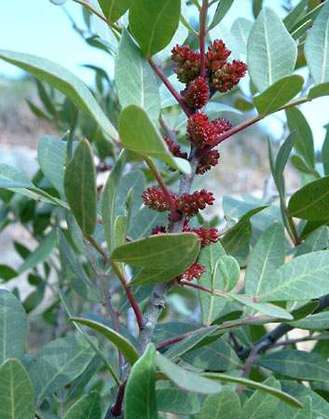 Mastic Tree (Ref. 3) Mastic Tree (Ref. 3) The prophet Jeremiah asked these questions, "Is there no balm in Gilead? Is there no physician there? (Jeremiah 8:22). Judah had turned away from the Lord and had completely ignored repeated warnings of judgment (for example, Jeremiah 5:20-31). Spiritual balm, God's salvation and healing, was available; however, the people were not seeking God. Spiritual balm through the priests and prophets was ineffective because "the prophets prophesy falsely, and the priests rule on their own authority" (Jeremiah 5:31). About the Spiritual, "There is a Balm in Gilead." "There is a Balm in Gilead" and other African-American spirituals came out of the period of slavery in America (1619-1865; Ref. 4). This spiritual is evidence that African-American Christians knew and trusted Jesus for salvation and healing despite their condition on earth. African-American Christians answered Jeremiah's question with a resounding "Yes, there is a balm in Gilead" (Ref. 5). The message of "There is a Balm in Gilead" still applies today. Despite whatever condition we are in, or whatever misery or difficulty we are going through, Jesus can heal our wounds and make us whole. Apply. In what area of your life do you need the healing balm of Jesus Christ today? Listen. I encourage you to listen and enjoy these two beautiful and moving presentations of "There is a Balm in Gilead." "There is a Balm in Gilead" - Adventist Vocal Ensemble (well known on BBC). "There is a Balm in Gilead" - East Carolina University Chamber Singers. References 1. http://biblehub.com/commentaries/jeremiah/8-22.htm 2. https://www.britannica.com/place/Gilead-ancient-region-Palestine#ref130865 3. https://www.britannica.com/plant/mastic-tree 4. https://www.infoplease.com/timelines/history-slavery-america 5. https://www.umcdiscipleship.org/resources/black-history-month-there-is-a-balm-in-gilead To see a hymn music video about inner healing, click on "Good News of the Kingdom" by Whitney V. Myers.
For articles about Scripture Allusions (Bible References) in other hymns, refer to "Scripture Allusions in Hymns" by Whitney V. Myers. |
Daily Bible Verse(Click the link above) AuthorMr. Whitney V. Myers. Christian. For more information, please visit the Author Page. Posting ScheduleI plan to provide new postings about once a month. Planned Topics(subject to change) Recent Posts(most recent three months) Popular Posts(top 10) Categories
All
Archives
July 2024
|
|
Copyright 2018-2024 Whitney V. Myers |
Listed in Feedspot's Top 100 Bible Study Blogs and Websites |
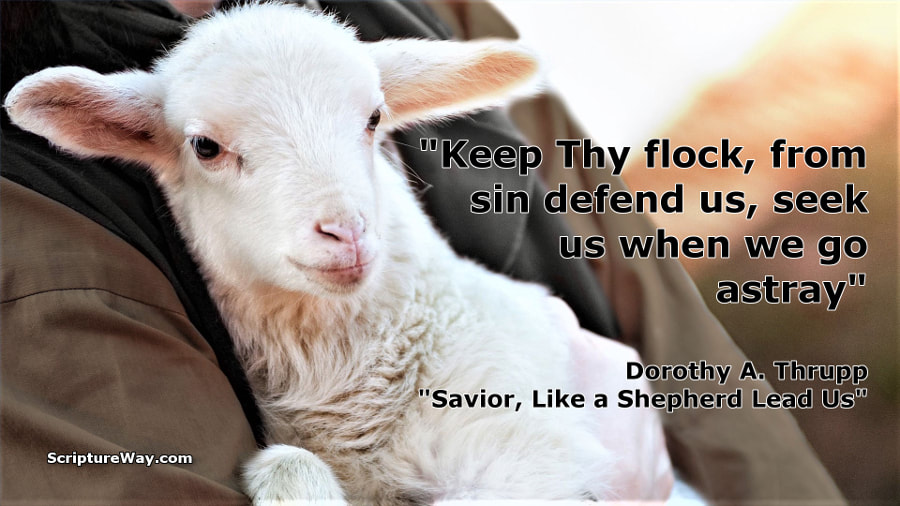

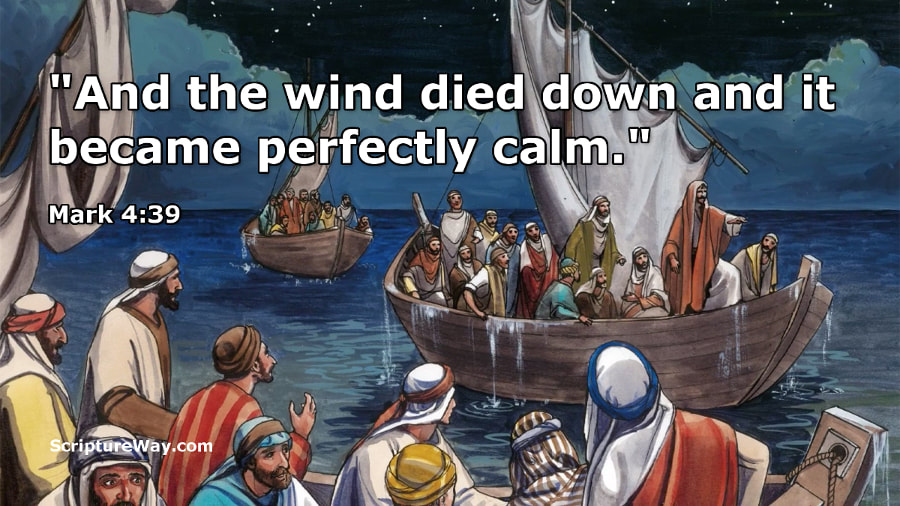
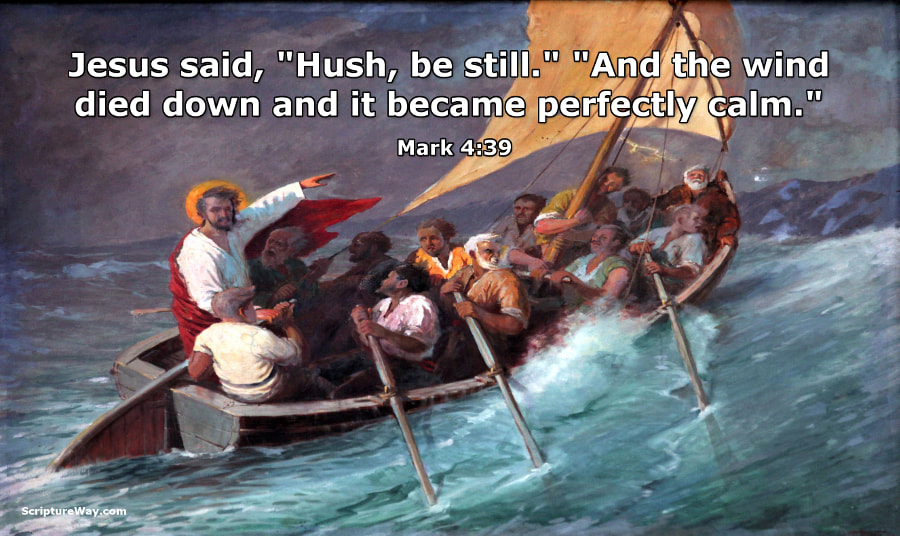
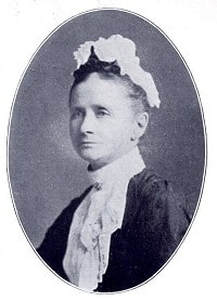
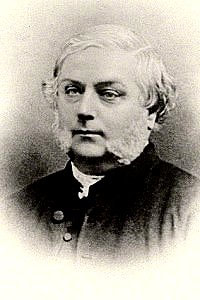
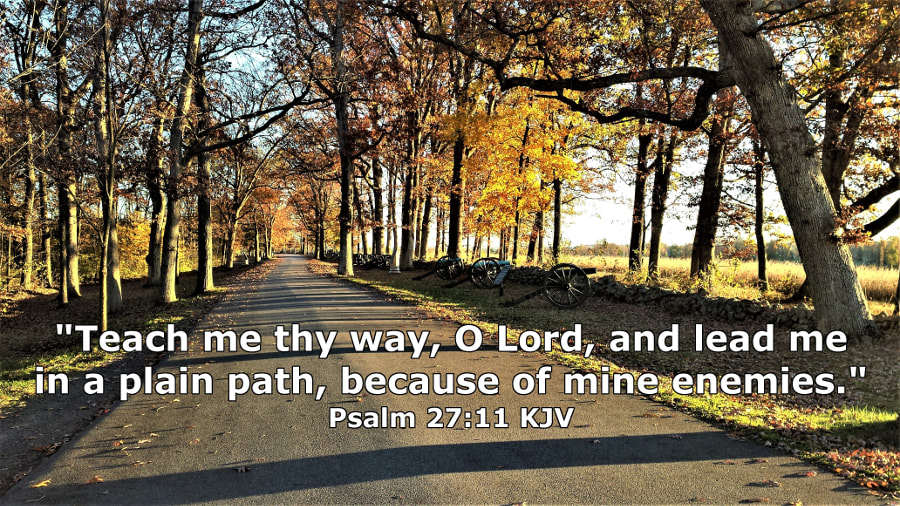
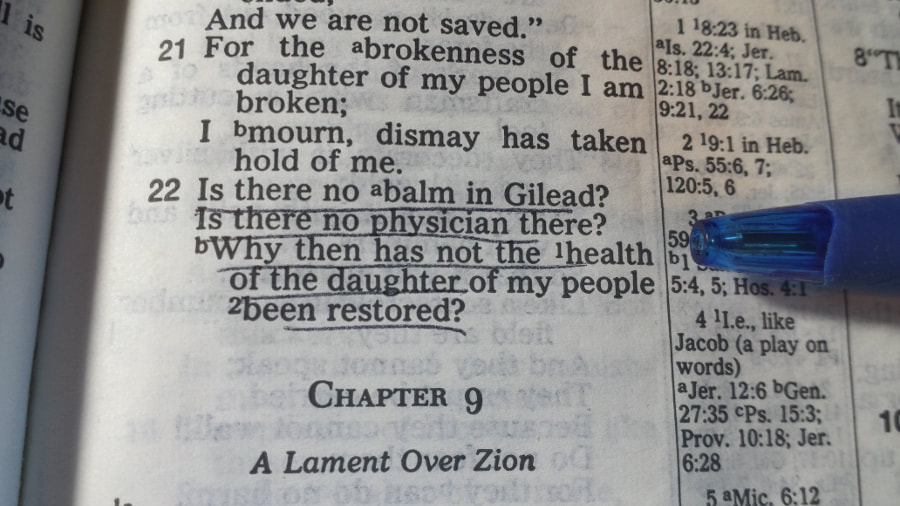
 RSS Feed
RSS Feed
